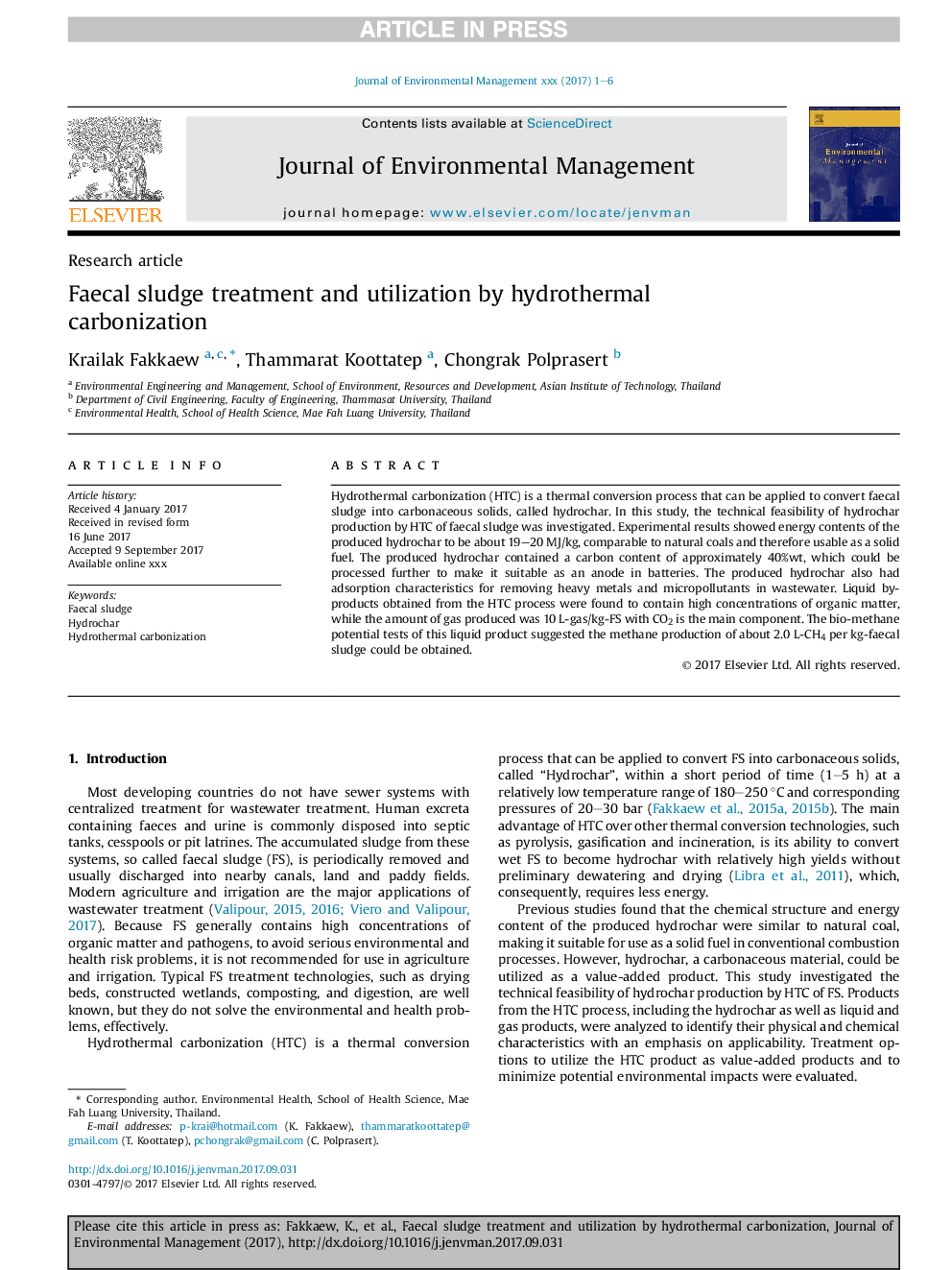| Article ID | Journal | Published Year | Pages | File Type |
|---|---|---|---|---|
| 7477490 | Journal of Environmental Management | 2018 | 6 Pages |
Abstract
Hydrothermal carbonization (HTC) is a thermal conversion process that can be applied to convert faecal sludge into carbonaceous solids, called hydrochar. In this study, the technical feasibility of hydrochar production by HTC of faecal sludge was investigated. Experimental results showed energy contents of the produced hydrochar to be about 19-20Â MJ/kg, comparable to natural coals and therefore usable as a solid fuel. The produced hydrochar contained a carbon content of approximately 40%wt, which could be processed further to make it suitable as an anode in batteries. The produced hydrochar also had adsorption characteristics for removing heavy metals and micropollutants in wastewater. Liquid by-products obtained from the HTC process were found to contain high concentrations of organic matter, while the amount of gas produced was 10Â L-gas/kg-FS with CO2 is the main component. The bio-methane potential tests of this liquid product suggested the methane production of about 2.0Â L-CH4 per kg-faecal sludge could be obtained.
Related Topics
Physical Sciences and Engineering
Energy
Renewable Energy, Sustainability and the Environment
Authors
Krailak Fakkaew, Thammarat Koottatep, Chongrak Polprasert,
